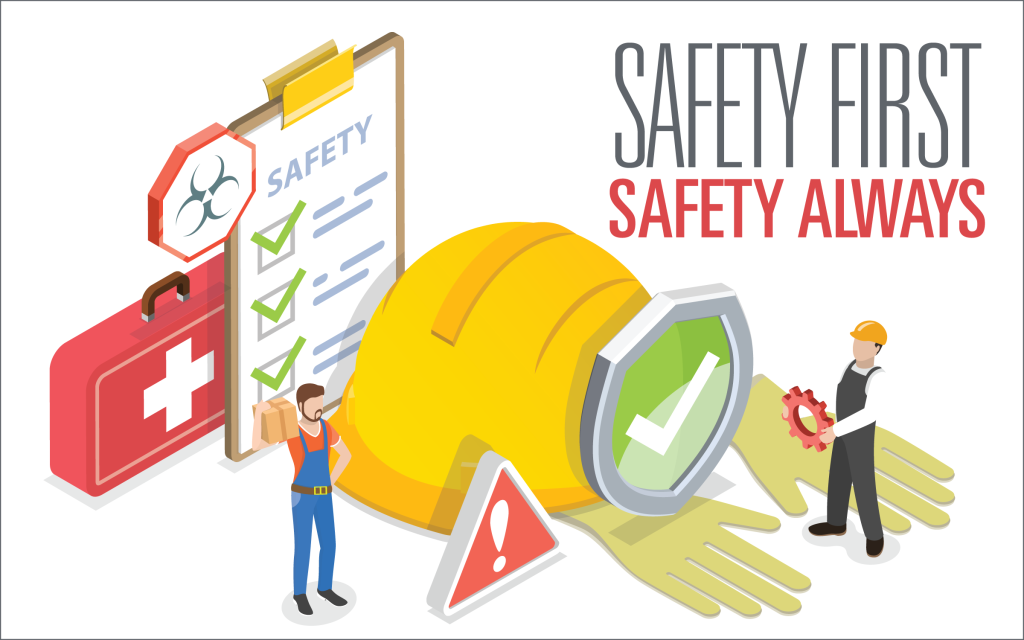
Power washing might not seem like a dangerous profession at first glance — after all, you’re cleaning surfaces, not welding steel or climbing high-voltage towers. But make no mistake: this job comes with serious risks. 💥💧
From high-pressure water injuries to chemical exposure, electrical hazards, slippery surfaces, and equipment malfunctions, one misstep can lead to a trip to the ER or worse. 😰
That’s why safety training isn’t optional — it’s a critical part of running a professional, sustainable, and trustworthy power washing business.
In this article, we’ll dive deep into why safety training matters, what you need to cover, and how a safety-first mindset protects your people, your business, and your bottom line. 🛡️💼
🚨 Why Safety Training Matters
Let’s start with the big picture.
🩹 1. It Prevents Injuries
High-pressure washers can blast water at 2,000 to 4,000 PSI — more than enough to break skin, shatter windows, or knock someone off a ladder. Without proper handling techniques, the risk of serious injury skyrockets. 🚫💦
Regular safety training reduces:
- Sprains, strains, and slips
- Chemical burns or inhalation
- Electric shock from wet outlets or exposed wires
- Falls from heights or unstable surfaces
💵 2. It Lowers Liability and Insurance Costs
Accidents can lead to:
- Workers’ comp claims
- Lawsuits from clients or bystanders
- Equipment damage
- Lost productivity
Insurance providers take notice when businesses invest in safety. Some even offer discounts for companies with documented training programs. 📉📝
🧑🔧 3. It Builds a Culture of Professionalism
When clients see you wearing proper gear, taping outlets, or roping off slippery areas, they assume:
“These guys know what they’re doing.” 💡
That confidence leads to repeat business, referrals, and higher perceived value — allowing you to charge more.
🛠️ What Your Safety Training Program Should Cover
Now let’s talk about what to include in your safety training — whether you’re training yourself, new hires, or a full crew.
1️⃣ Personal Protective Equipment (PPE)
Your first line of defense. Every team member should know how (and when) to use:
- Safety goggles or face shields 🥽 – Protect eyes from flying debris
- Gloves 🧤 – Chemical-resistant for detergent use
- Boots with non-slip soles 👢 – Prevent falls
- Hearing protection 🎧 – For gas-powered units
- Respirators or masks 😷 – When working with certain chemicals
Make wearing PPE non-negotiable.
Browse Amazon Here For Power Washing Safety Gear
2️⃣ Machine Operation and Maintenance
Even if a worker is familiar with basic equipment, make sure they know:
- How to safely start and shut down a pressure washer
- How to relieve pressure in the line before disconnecting
- Why not to point the wand at people, animals, or fragile surfaces
- How to identify when a hose is worn or cracked
- The difference between nozzle tips (15°, 25°, 40°, etc.) and when to use each 🔫
Also cover routine maintenance — neglect leads to breakdowns or accidents. 🧰
3️⃣ Chemical Handling
Not all power washing involves just water. Detergents and degreasers can be harsh or toxic.
Your training should teach:
- How to properly dilute chemicals
- What to do in case of skin or eye contact
- How to store and label chemicals safely
- The importance of never mixing incompatible substances (like bleach and ammonia) 🧪☠️
- Reading and understanding SDS (Safety Data Sheets)
Safe chemical practices are essential for both health and compliance.
4️⃣ Electrical Awareness
Water + electricity = ⚡danger. Cover these vital safety points:
- Always check for outdoor outlets and power lines nearby
- Use GFCI-protected outlets whenever possible
- Keep extension cords dry and elevated
- Avoid spraying electrical panels, AC units, or junction boxes
- Know how to shut off power in an emergency
A moment of carelessness can lead to an electrocution. This is not an area to take lightly.
5️⃣ Ladder and Roof Safety
Many jobs involve height. Falls are one of the top causes of injury in the industry. Teach:
- Always use a spotter when using ladders
- Set ladders on stable, level surfaces
- Maintain 3 points of contact (2 hands and 1 foot or vice versa)
- Don’t lean too far or stand on the top rung
- Use roof anchors or harnesses for steep or slippery roofs
- Avoid walking on shingle roofs when wet — extremely hazardous ☔🏠
6️⃣ Weather and Environmental Conditions
Train your team to recognize danger from:
- Thunderstorms or lightning ⚡
- High winds (which can knock over ladders or unsteady surfaces)
- Freezing temps (which can cause slick spots or equipment freeze-ups)
- Heat exhaustion on long summer days ☀️
Teach workers to hydrate, take breaks, and dress for the weather.
7️⃣ Job Site Preparation and Walkthroughs
Every job site is unique. Before starting, train workers to:
- Walk the property and identify hazards (outlets, pets, toys, trip hazards)
- Speak with the homeowner about any concerns
- Tape or cover sensitive areas (outlets, keyholes, lights)
- Warn anyone nearby of slippery areas
This makes your team look sharp — and keeps everyone safe. 🧼📋
🔁 Safety Training Should Be Ongoing
A one-time walkthrough isn’t enough. Safety training needs to be:
- Regular – Monthly or quarterly refreshers
- Documented – Keep logs of who was trained and when
- Updated – New equipment or chemicals = new training
- Interactive – Use real-world scenarios and hands-on demos
You can create your own safety manuals, or reference free materials from OSHA and the PWNA (Power Washers of North America). 📚🖨️
🔍 Real-World Examples of What Can Go Wrong
- A rookie sprays into a cracked electrical socket — Result: severe shock and fire damage.
- An employee mixes bleach with ammonia — Result: toxic gas and a 911 call.
- A wet roof wash ends with a fall — Result: broken arm, weeks of downtime, and a $12,000 workers’ comp claim.
These aren’t hypotheticals — they happen more often than you think. Safety training prevents stories like these. 🚑
💼 How Safety Helps Your Business Reputation
Safety isn’t just internal — it’s a branding advantage.
When customers see:
✅ Workers wearing PPE
✅ Ladders set properly
✅ Equipment handled professionally
✅ Walkthroughs conducted with care
They assume you’re insured, qualified, and worth hiring again.
It also helps when bidding for commercial or government contracts — they’ll want to see documented safety protocols.
🧠 Final Thoughts
Power washing might be a cleaning business — but it’s also a high-pressure, high-risk operation when done wrong.
As the owner, it’s your job to create a culture of constant awareness, respect for the tools, and proper training. Your crew (even if it’s just you) is your biggest asset.
Here’s what a solid safety program will give you:
✅ Fewer injuries
✅ Lower liability and insurance costs
✅ Higher-quality service
✅ More client trust
✅ Better team morale and retention
Don’t wait for an accident to remind you why safety matters. Train like a pro — and lead like one too. 🧽🦺✅






